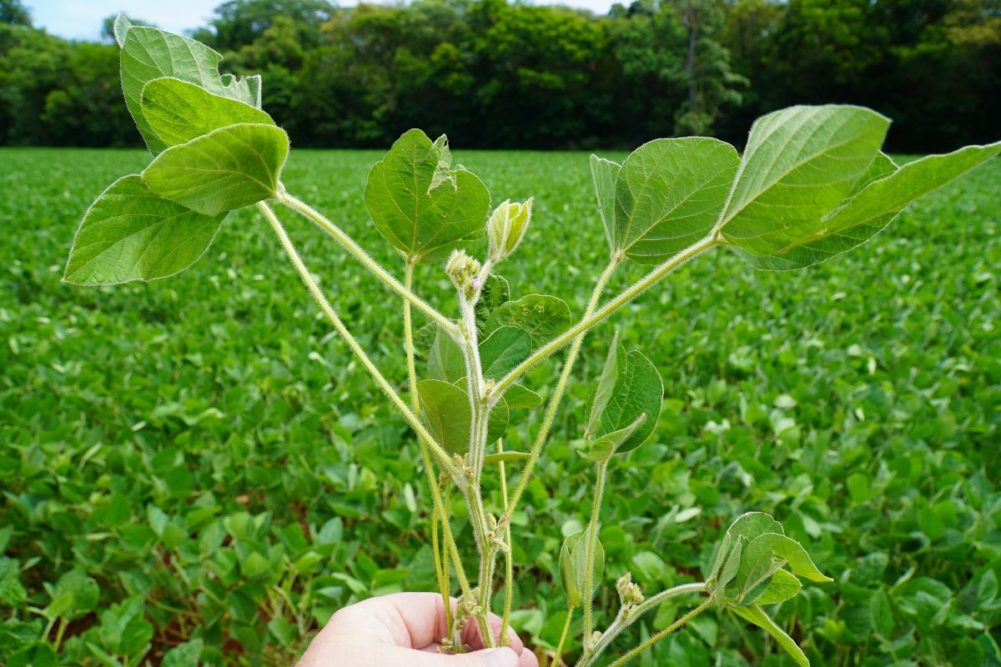CHICAGO, ILLINOIS, US — ADM will expand its global regenerative agriculture efforts with the start of a pilot program in Brazil that will engage 20 soybean farmers encompassing 20,000 hectares (almost 50,000 acres) with a focus on soil health, biodiversity protection, improved soil fertility and resilience, and increased farm productivity.
The Brazil program aims to promote and support sustainable agricultural production and initially will concentrate on three practices:
- Fertilizer use efficiency and increased use of biological inputs, reducing chemical inputs and substituting traditional nitrogen products with more technological alternatives to result in reduced carbon emissions in planting, coupled with increased productivity due to improved soil health.
- No-till farming, with technical assistance guidance for the refinement and intensification of this widely used practice in the field.
- Covered soil/cover crops, using a mix of cover crops to improve soil health, especially during offseason windows, to positively impact water absorption, structure, biodiversity and soil fertility.
“We’re proud to expand our global efforts and launch our regenerative agriculture program in Brazil,” said Luciano Souza, ADM’s grains director for South America. “The basic principle is to support farmers in their efforts to do more with less, meaning higher productivity with less use of inputs, less water use, lower greenhouse gas emissions, lower risk of soil degradation, and less use of fuels and energy. We know that customers are looking for lower-carbon intensity products with increased transparency in supply chains, and we’re committed to continuing to expand our efforts to help them meet their sustainability goals and consumer needs.”
The pilot program in Minas Gerais (Uberlândia region) and Mato Grosso do Sul (Campo Grande region) will be used to gather information on current practices and their impacts, including calculating carbon footprints.
Farmers participating in the pilot will receive technical assistance, training sessions and soil organic matter and carbon sequestration measurements, ADM said. All greenhouse gas emission calculations for the pilot will be performed using a calculator designed and developed by Bayer S.A. in partnership with Embrapa to be regionally specific, and to quantify field emissions, land-use change emissions, carbon footprint of inputs applied in the field, and carbon footprint of transportation.
Primary data collection during the pilot for greenhouse gas emission calculations and soil analysis with carbon sequestration measurement will allow ADM, Bayer and other participants to gain insight into current environmental impacts and potential reduction opportunities as the program expands, with ADM targeting engagement of 120,000 regenerative agriculture hectares (300,000 acres) in Brazil by 2027.
“This is a significant step by Bayer, through collaborative work, cutting-edge science and technology, to build, with farmers and partners, the carbon ecosystem,” said Felipe Albuquerque, carbon new business development manager at Bayer. “We understand that in agribusiness, we have the important purpose of mitigating the impact of climate change through the pillars of regeneration, decarbonization, and greenhouse gas removal. The partnership with ADM promotes an economically attractive model, where industry and producers connect and create solutions that benefit the entire value chain.”
The regenerative agriculture programs by ADM, a global agribusiness leader, feature financial and technical support for farmers; easy processes and cutting-edge technologies to ensure low barriers to entry; and/or a broad range of support and guidance from both internal and third-party experts. In 2022, the company enrolled 1,900 US producers representing more than 1 million acres, resulting in an estimated reduction of 253,000 tonnes of CO2e and sequestration of 115,500 tonnes of CO2. ADM has set a target to engage 4 million regenerative agriculture acres globally by 2025.
Earlier this month, ADM issued “Farming for the Future: The State of Regenerative Agriculture Program Adoption,” a report with new survey data reaffirming the promise and potential of regenerative agriculture practices to help meet growing consumer demand for sustainably sourced products while building business resilience for the companies that meet those needs.
ADM’s regenerative agriculture work will be a focus of its presence at this year’s COP28 in Dubai, United Arab Emirates, where the company will be partnering with the World Climate Foundation to host a panel exploring the role and importance of cross-sector action and investment to protect agriculture and food systems. ADM will also be featuring regenerative agriculture on the COP Presidency stage on Dec. 4.





